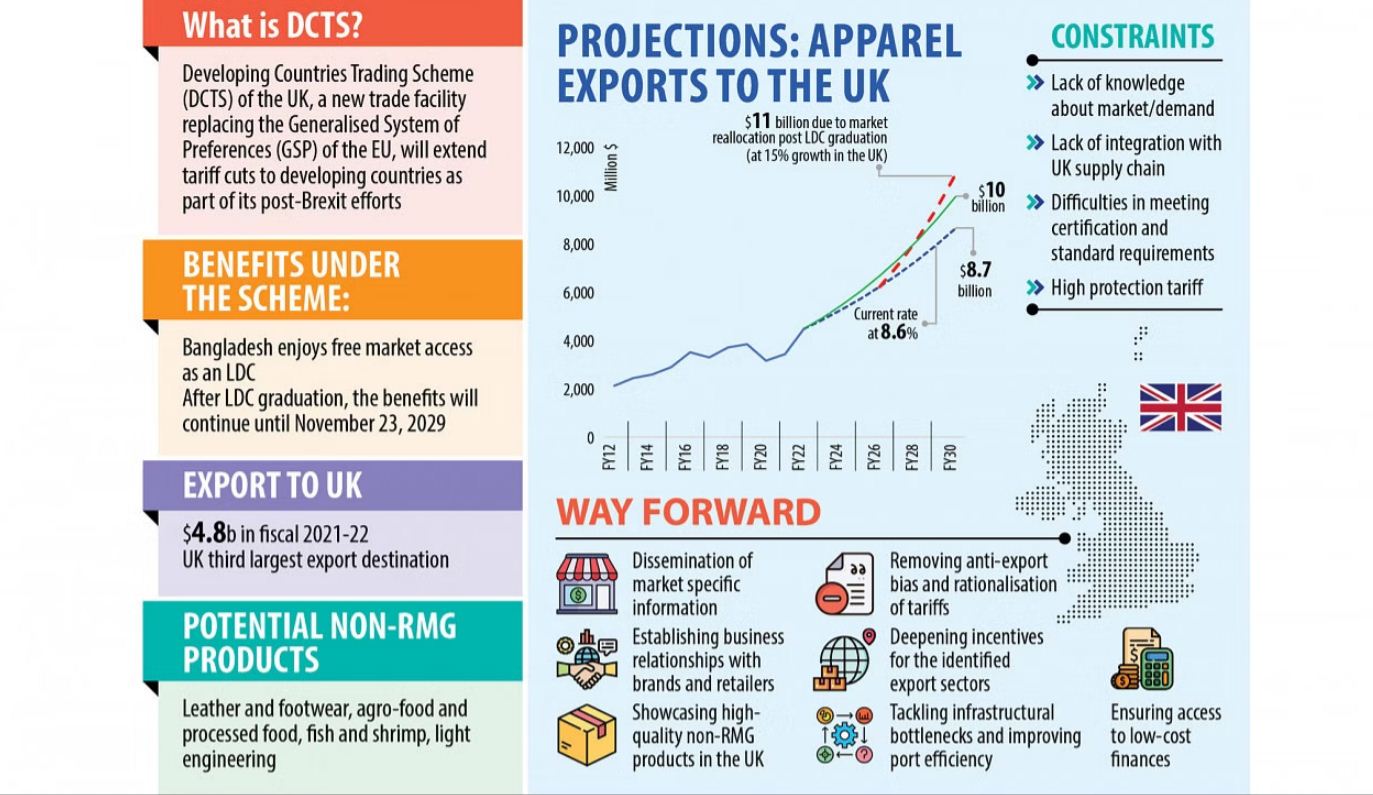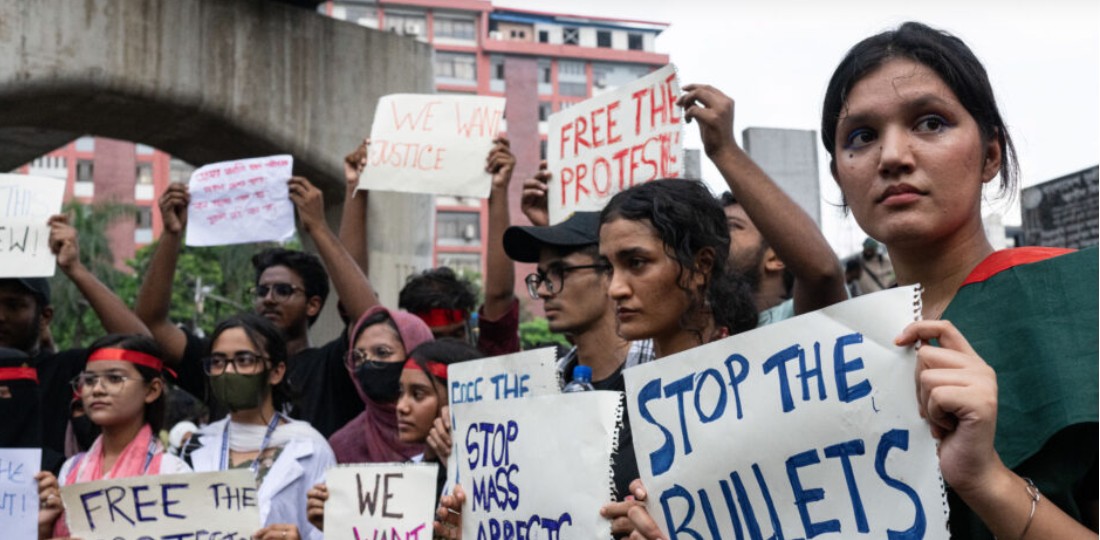Think-tank RAPID projects as duty benefit to continue even in post-LDC era
Bangladesh’s annual exports to the United Kingdom would reach $12.3 billion by 2030 as apparel shipments will continue to enjoy duty-free market access in the country even after becoming a developing nation, according to a new projection.
“There are tremendous opportunities to raise exports to the UK,” said Mohammad Abdur Razzaque, chairman of the Research and Policy Integration for Development (RAPID), a think-tank.
The UK has recently announced the Developing Countries Trading Scheme (DCTS), which replaced the country’s generalised system of preferences. This ensures that Bangladesh’s apparel exports continue to get the duty-free access in the country.
Of the projected annual receipts of $12.3 billion, $11 billion would come from apparel shipments and the rest from the sales of non-RMG items.
“In a realistic measurement and considering the present economic situation, the export earnings would be achievable,” said Razzaque, while speaking at a stakeholder consultation titled “Expanding and Diversifying Exports to the UK Market” at the Brac Centre Inn in Dhaka.
The export to the UK was $4.8 billion in the fiscal year of 2021-22 and the country is the third-largest export destination for Bangladesh, according to the Export Promotion Bureau (EPB).
Bangladesh’s share in the UK’s apparel market doubled to 14 per cent from 2010 to 2021, while China’s share dropped to 21 per cent from 37 per cent, according to the RAPID.
“If more investments come in a planned way and the government supports the private sector, Bangladesh’s export to the UK would surge,” said Razzaque.
He said it is still unsettled if Bangladesh’s garment exports will continue to enjoy the duty-free market access in the EU after the LDC graduation.
“But the UK market is predictable now and entrepreneurs can invest in targeting the market,” Razzaque said.
The potential of non-RMG exports is also high in the UK.
The sectors such as leather goods and footwear, agro-food, fish and shrimp, and light engineering can accelerate their export growth rate, Razzaque said while presenting a paper in the event.
Exporters also face some challenges and have a lack of knowledge and information about the developed market. So, they often find it difficult to meet the UK’s standard and certification requirements, which are more stringent for small exporters.
There are supply-side challenges as well. They include technological constraints, limited access to finance, lack of skilled workforce, infrastructural bottlenecks such as improper transportation and logistics system and electricity shortage, excessive lead-time, and a lack of governance, according to the presentation.
On the other hand, the nominal protection rate, the percentage of the tariff imposed on a product as it enters a country, is so high that the sales in the domestic market are more profitable than export destinations.
“So, many producers are not targeting to export their products,” Razzaque said, adding that domestic standards are much weaker than those in the export markets.
Standards related to product safety and ESG (Environmental, Social, and Governance) factors are not complied properly in the case of producing products for the domestic market, he added.
“After the country’s graduation from the LDC group, the government would not be able to provide much protection. So, entrepreneurs should try to stand on their feet and become competitive from now onwards,” said Tapan Kanti Ghosh, senior secretary of the commerce ministry.
“The government is talking to the private sector and asking them to prepare accordingly. We will also help entrepreneurs solve their problems.”
The UK always focuses on environmental and sanitary and phyto-sanitary issues, so producers should be aware of it, said AHM Ahsan, vice-chairman of the EPB.
He requested producers not to resort to any malpractices when it comes to maintaining the quality of goods so that the UK remains a good export destination for Bangladesh.
Duncan Overfield, deputy development director at the Foreign, Commonwealth and Development Office, said Bangladesh must explore the necessary policy options and support to ensure the best utilisation of the DCTS.
He said the perception of goods originating from Bangladesh would become more positive over time, much like how the perception of goods from Hong Kong and China changed over the years.
Md Faizul Islam, chairman of the Bangladesh Trade and Tariff Commission, said both public and private sectors need to work together to ensure export diversification.
Prof M Abu Eusuf, executive director of the RAPID, presided over the event.
Source: The Daily Star, a Dhaka based newspaper.





